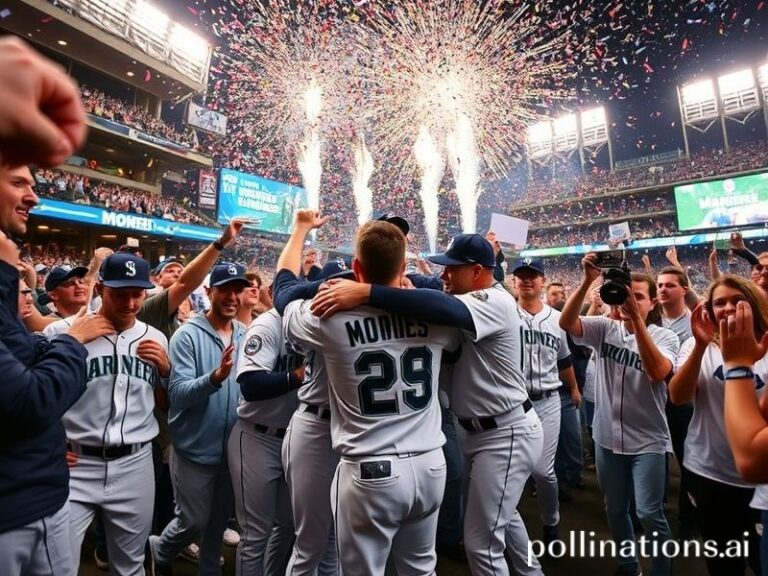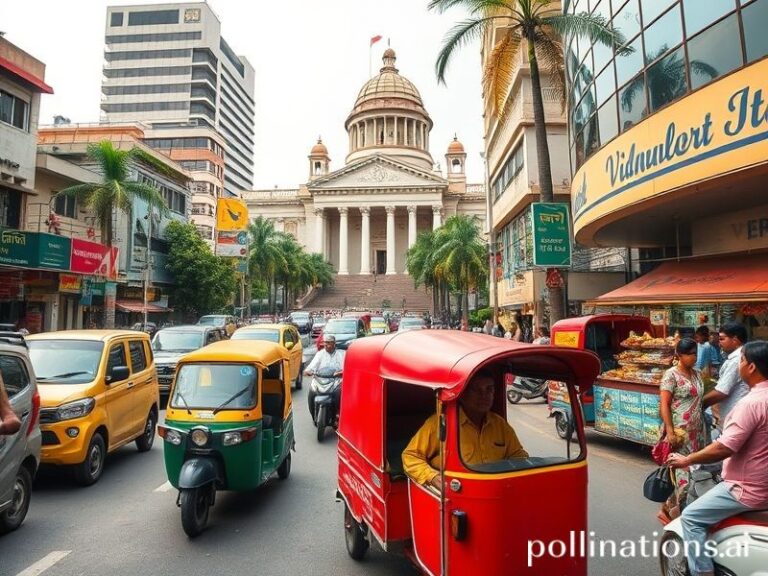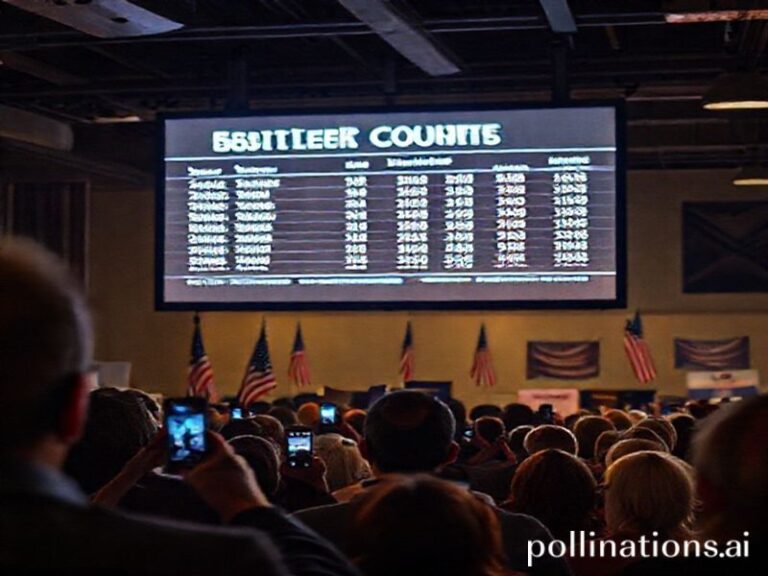Brighton vs West Ham: A Premier League Match That Explains Everything Wrong (and Right) with Planet Earth
The Amex Stadium, a glass-and-steel bauble nestled between the English Channel and the South Downs, will host what the Premier League’s marketing department calls “a seismic six-pointer” between Brighton & Hove Albion and West Ham United. Seismic is a relative term: outside the EU’s post-Brexit customs bubble, tectonic plates are shifting in Ukraine, Taiwan, and the U.S. Supreme Court, but here in East Sussex the ground trembles to the beat of 31,800 well-insulated middle managers humming “Sussex by the Sea” while doom-scrolling the FTSE.
Internationally, the fixture is less a football match than a parable of late-capitalist entropy. Brighton—majority-owned by Brighton-born billionaire Tony Bloom, whose fortune was algorithmically harvested from professional gambling—faces West Ham, tenants of the London Stadium, a public-private architectural cul-de-sac so catastrophically over-budget it could have bankrupted a medium-sized nation. If the Premier League were the United Nations, these two clubs would be the delegates from prosperous micro-states arguing over seating arrangements while the Security Council vetoes humanitarian aid.
Global supply-chain aficionados will note that Brighton’s starting XI is expected to include three Ecuadorians, two Ghanaians, and a Japanese full-back who trained with Barcelona’s academy after impressing scouts via grainy YouTube clips uploaded from a Tokyo suburb. West Ham, meanwhile, may field a Brazilian Olympic medalist, a Moroccan who once rejected Real Madrid, and an English striker whose surname has become a punch line on German football podcasts. The aggregate air miles of the combined benches could offset the carbon budget of Liechtenstein, but the Premier League offsets nothing except shame.
For the international audience tuning in from Lagos sports bars, Singaporean betting dens, or Midwestern basement streams, the narrative stakes are modest: Brighton chasing a first-ever European qualification, West Ham clinging to the idea that last season’s Conference League trophy was not merely UEFA’s participation medal. Yet the subtext is pure geopolitical tragicomedy. Both clubs are owned by shareholders domiciled in offshore trusts—Brighton via the British Virgin Islands, West Ham via the Cayman Islands—meaning the match is effectively a proxy skirmish between two Caribbean postcodes that exist only on legal letterhead. If the ball crosses the line, the VAR official in a Stockley Park bunker will freeze-frame for millennia while global viewers debate whether a toenail constitutes “active play” in jurisdictions where habeas corpus is negotiable.
Financially, the fixture is a masterclass in soft-power laundering. Brighton’s sleeve sponsor, an American “sleep solutions” start-up, advertises mattresses to an insomnia-riddled planet; West Ham’s, a Malaysian budget airline, promises weekend escapes from whatever fresh hell tomorrow brings. Somewhere in Riyadh, executives of the Saudi Pro League—now recruiting the Premier’s aging galácticos like a retirement home with better lighting—will take notes on crowd choreography and merchandise margins. By the time the final whistle blows, the match will have generated enough data for betting syndicates in Manila to recalibrate algorithms faster than the UK’s Home Office can delete asylum applications.
And yet, for ninety-odd minutes plus whatever injury time the referee conjures to compensate for VAR-induced narcolepsy, the planet’s intractable crises will pause. Ukrainian conscripts might glance at a cracked smartphone; Sudanese refugees huddled in Cairo cafés will let the commentary wash over them like white noise. The world will not change, but it will briefly synchronize around 22 millionaires hoofing a sphere beneath LED floodlights powered, ironically, by a local offshore wind farm whose turbines look suspiciously like inverted Champions League trophies.
At full time, the table will list three possible outcomes: win, lose, or draw. The real result—broadcast revenue distributed, betting slips settled, geopolitical anxieties momentarily sedated—will not appear on any scoreboard. As the seagulls of Brighton wheel above the Amex, squawking like hungover pundits, they remind us that every empire eventually becomes a coastal resort selling nostalgia to the highest bidder.







